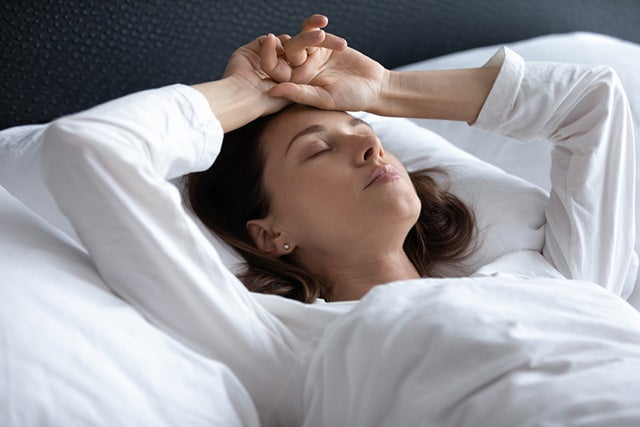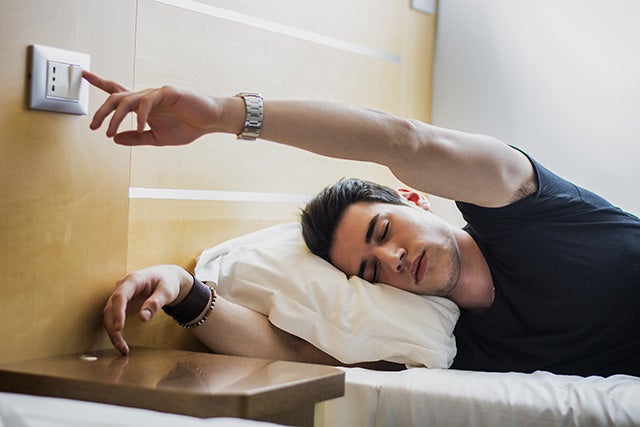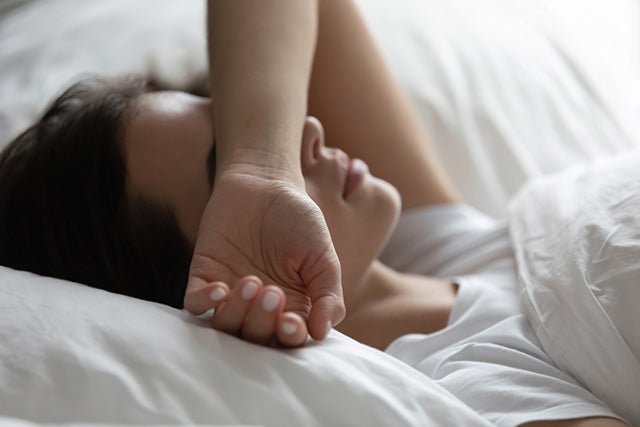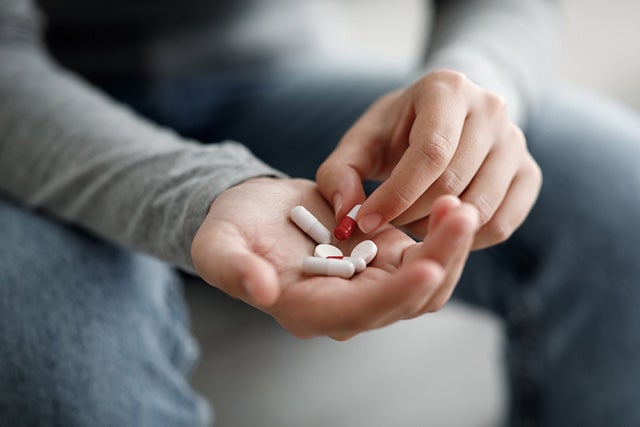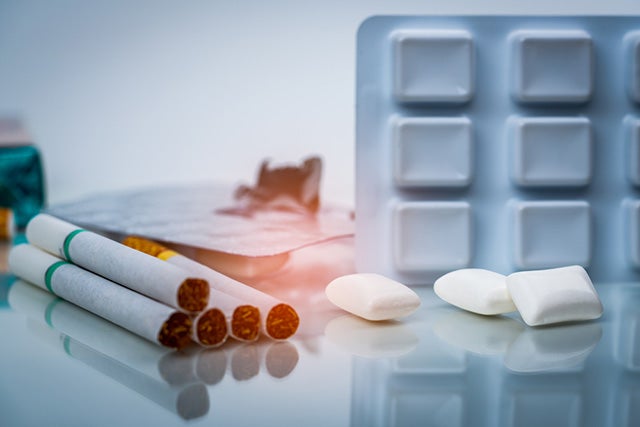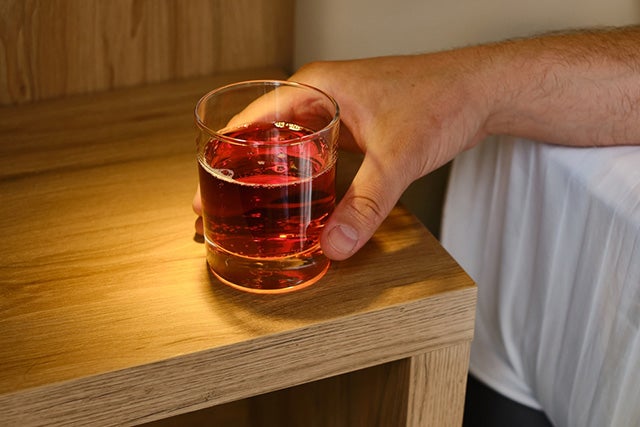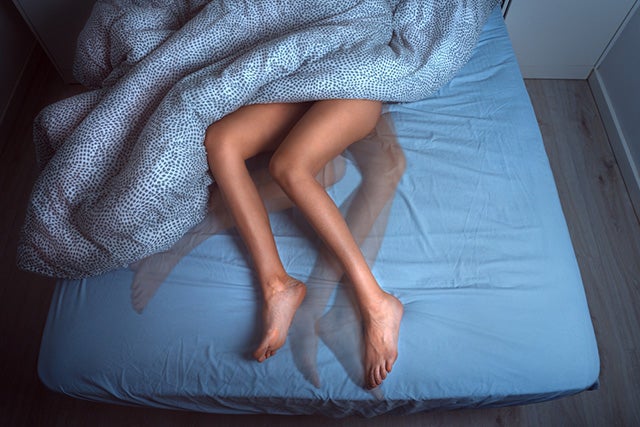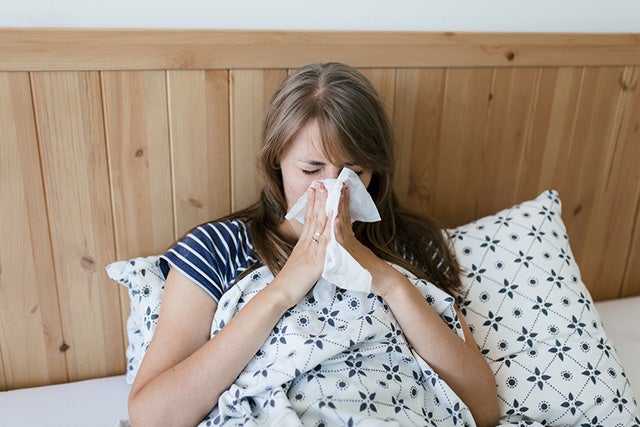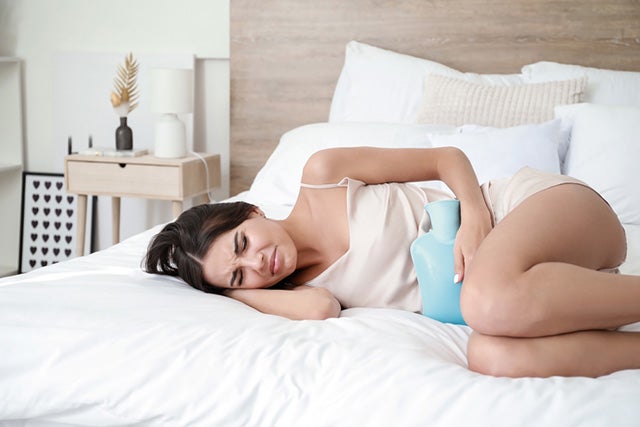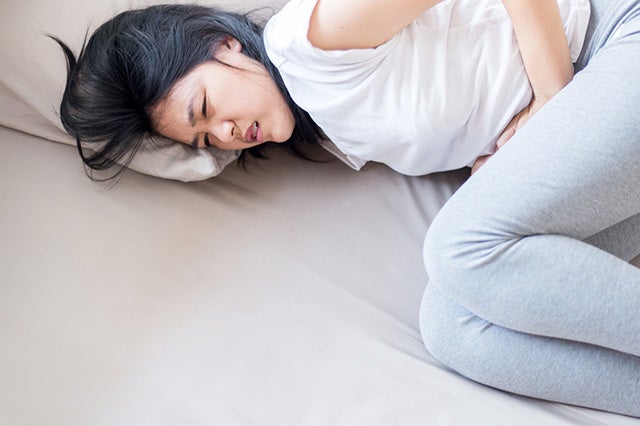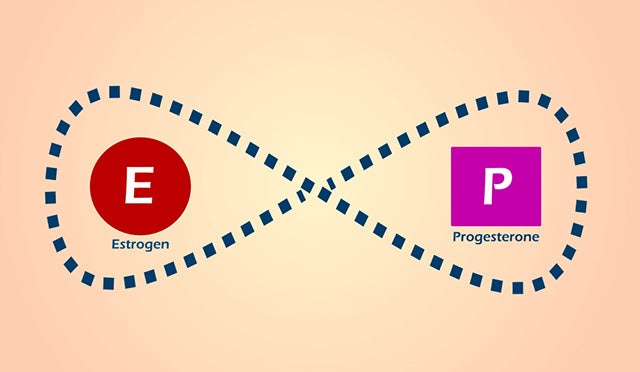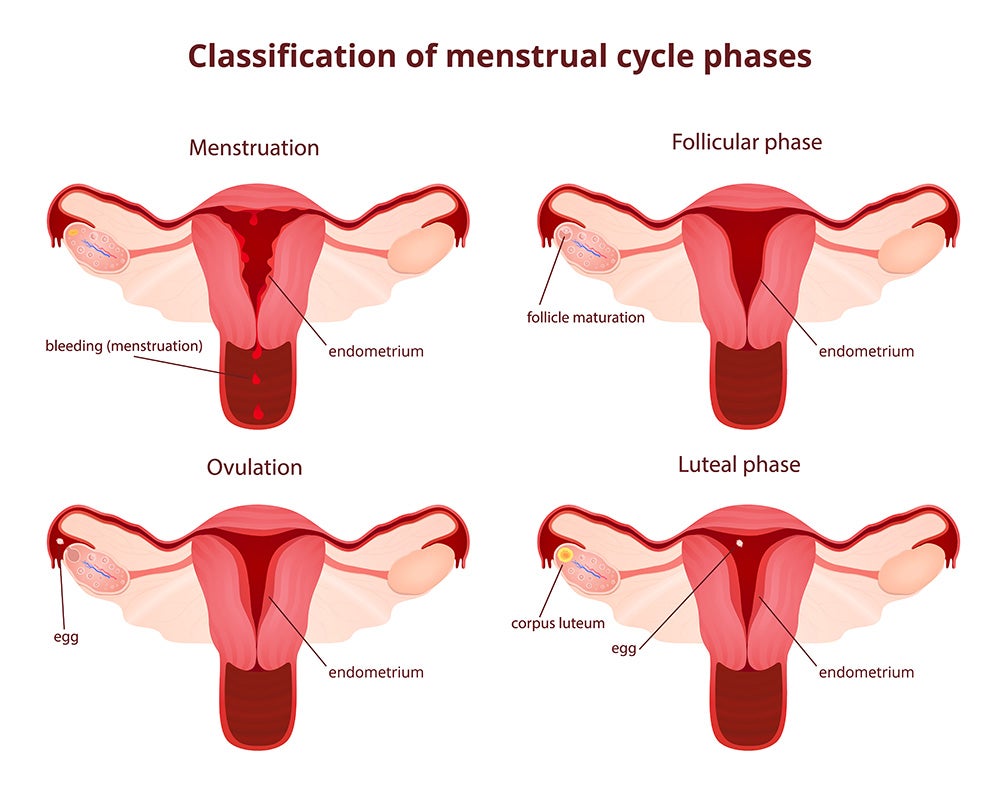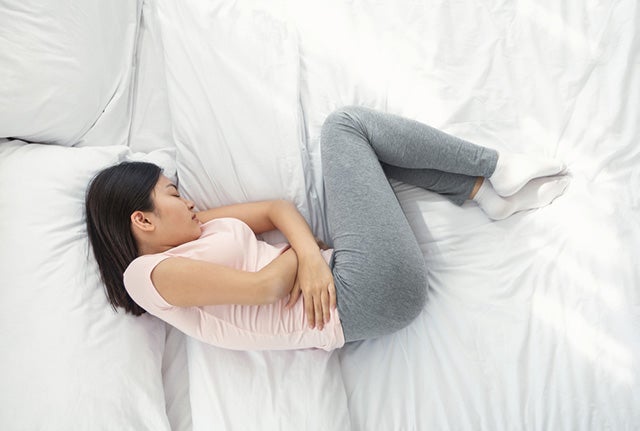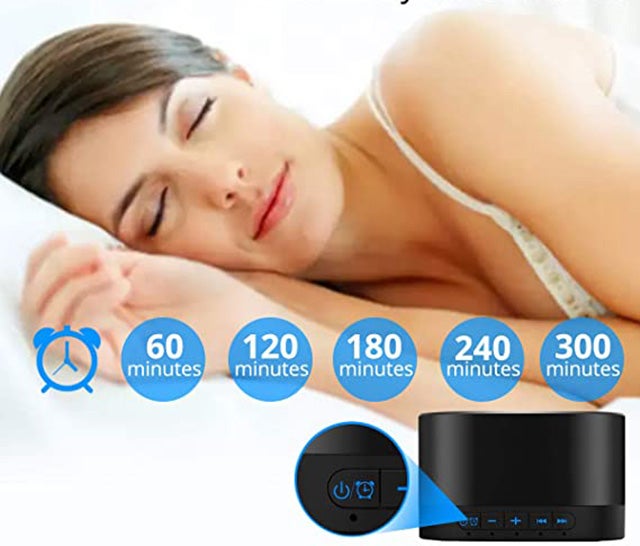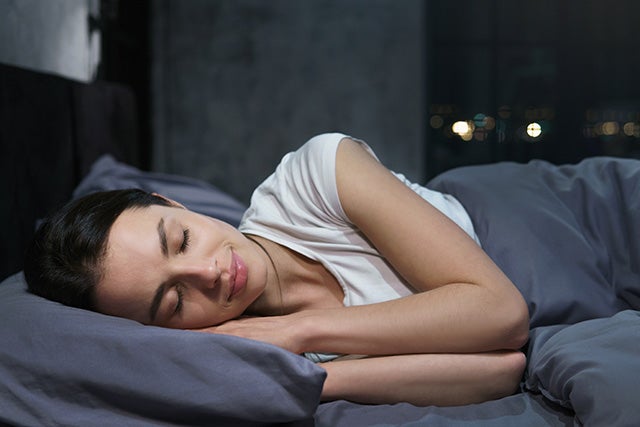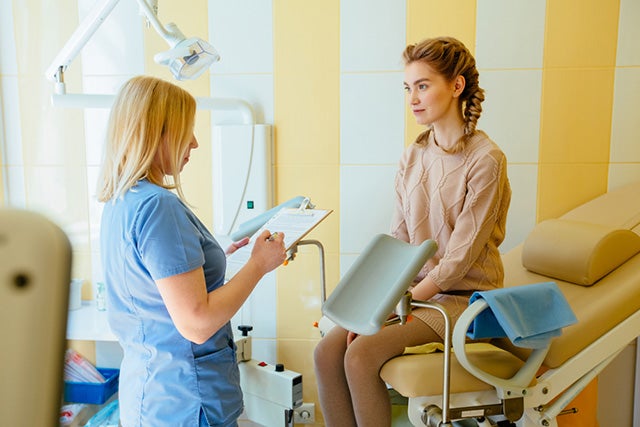Did you know that 35 percent of American adults suffer from insomnia? It’s a term that we’ve come to use frequently but it depicts a serious sleep problem. Sleep deprivation causes the mind and the body to stop functioning properly.
In some situations, insomnia is easy to dodge but it’s also a common symptom that leads to PMS. If you’re struggling with this problem yourself, allow us to tell you why that happens and how to overcome it.
What Causes Insomnia?
Having trouble falling asleep, staying asleep, or waking up too early are all symptoms of insomnia, which is a common sleep problem.
When you wake up, you may still be groggy. Insomnia is one of the leading causes of sleep deprivation, something that causes a series of other problems both physically and mentally.
Insomnia has various potential causes and isn’t just limited to the menstrual cycle.
— Poor Sleep Habits
A poor sleeping schedule encompasses everything that causes disruptions in your circadian rhythm. Computers, televisions, video games, smartphones, and other devices can all disrupt your sleep cycle immediately before bed.
Eating late in the evening is okay if it’s just a light snack. However, heavy meals will make it uncomfortable for you to lie down. They cause acid reflux and heartburn.
Uncomfortable sleeping environments can also lead to poor sleep. That includes improper bedroom temperature, leaving any light on, and performing stimulating activities before bed.
— Hectic Work Schedule
Circadian rhythms function as an internal clock, regulating sleep-wake cycles, body temperature, and metabolism. When you have to work nightshifts and are forced to stay awake because of this, it disrupts your circadian rhythm.
— Stress and Anxiety
It is possible to keep your thoughts active at night due to worries about work, education, family problems, or finances, which makes it difficult to sleep. Traumatic events also cause insomnia. This could be anything from a break-up to the passing away of someone dear to you.
— Medication
Numerous prescription medications, such as some antidepressants and treatments for asthma or high blood pressure, have been shown to cause sleep disturbances. The presence of caffeine and other stimulants in many over-the-counter prescriptions has been linked to sleep disruption.
— Stimulants
These include caffeinated beverages such as cola-based drinks, tea, coffee, and other caffeinated beverages. If you consume them in the late afternoon or evening, you may have difficulty falling asleep at night time.
Nicotine is another stimulant that can cause sleep disturbances.
Alcohol can help you in falling asleep, but it hinders you from reaching deeper stages of sleep and frequently leads you to awaken in the middle of the night.
— Sleep Disorders
A series of sleep disorders could lead to insomnia, with sleep apnea and restless leg syndrome being prevalent. With sleep apnea, your breathing stops periodically during the night, interfering with your ability to sleep well.
People who have restless leg syndrome experience unpleasant sensations in their legs and an almost overwhelming need to move them. This prevents you from falling asleep or keeping your eyes open at night.
— Medical Conditions
There are plenty of medical conditions that cause insomnia directly or indirectly (because of the medication you are required to take). They include asthma, diabetes, cancer, Parkinson’s disease, Alzheimer’s, chronic pain, and others.
What Is PMS?
Short for premenstrual syndrome, PMS is a series of symptoms and changes that occur before a woman experiences her monthly period. In addition to mood swings and sensitive breasts, PMS manifests itself in a wide range of other signs and symptoms such as exhaustion and irritability, as well as despair and anxiety.
It is estimated that up to three out of every four women have suffered some type of premenstrual syndrome at some point.
There is a consistent pattern in which symptoms appear and disappear. But, the physical and emotional changes you experience as a result of premenstrual syndrome can range from being barely perceptible to being extremely noticeable.
You do not, however, have to allow these issues to dictate your daily activities. Treating premenstrual syndrome with medications and making lifestyle changes can help you decrease or manage the symptoms of the condition.
What Is PMDD?
Short for premenstrual dysphoric disorder, PMDD is a more severe version of premenstrual syndrome. With PMDD, you may experience menstrual symptoms in addition to severe irritability, depression, stress, and anxiety.
Although these symptoms subside within a few days of the start of your period, they might be severe enough to disrupt your life.
Experts do not understand why certain women get PMDD. Reduced estrogen and progesterone hormone levels following ovulation and prior to menstruation may produce symptoms.
Serotonin, a brain chemical involved in mood, hunger, and sleep regulation, may possibly be involved. Serotonin levels, like those of other hormones, fluctuate throughout the menstrual cycle.
How Is Insomnia Linked to Your Period?
Research that links insomnia and your period need to be extended, as experts are not entirely sure how these two are linked. Here are what researchers were able to discover so far.
• Impact on Hormone Production
In women with premenstrual syndrome, fluctuating hormone levels may result in trouble falling asleep as well as increased sleep interruptions. Numerous studies have discovered that sleep is significantly lower during the late-luteal phase compared to other times of the menstrual cycle.
Hormonal fluctuations prior to and during menstruation may interfere with sleep by altering melatonin products and body temperature.
Progesterone causes an increase in body temperature, which can result in interrupted sleep. Certain studies have discovered changed melatonin levels during the menstrual cycle.
• Mood Swings
Mood swings are another significant factor to consider while dealing with pre-period sleep difficulties. PMS can exacerbate anxiety and despair, which are both connected with sleep difficulties.
Additionally, these mood shifts may cause women to report that they are having difficulty going asleep or waking up feeling less refreshed.
• Modified Sleep Architecture
The evidence is loose, but several studies have discovered that women with premenstrual syndrome have altered sleep architecture, which means they advance improperly through the stages of sleep.
For instance, it has been observed that some women experience reduced REM sleep during the late luteal phase. REM sleep is defined by increased brain activity and is connected with vivid dreams. These alterations in sleep architecture may occur in women who do not suffer from premenstrual syndrome.
The Cycle of Your Periods
The menstrual cycle is basically a bunch of changes that occur in a woman’s body to prepare her for a potential pregnancy. The cycle begins its stages starting with the first day of the period. Usually, a menstrual cycle lasts 28 days, but it can start at 21 and be as long as 35 days.
During these 28 days, the body experiences a rise and fall in hormones. The ovaries and the pituitary gland release a series of hormones that cause different organs in the reproductive tract to respond in different ways. This triggers a series of events that divides the cycle of your period into three main stages.
1. The Menses Phase
This phase begins on day one and usually lasts until the fifth day of the cycle. The uterus sheds most of its lining through the vagina, causing it to bleed. This bleeding only occurs if there’s a lack of pregnancy (there are rare cases where women experience their period even if they are pregnant).
On average, the menses phase causes bleeding for two to seven days, with five being the average.
2. The Follicular Phase
This phase usually lasts from day six to 14. The female body experiences a rise in estrogen. As this occurs, the lining of the uterus becomes thicker and follicles begin to grow in the ovaries. From day 10 to day 14, one follicle creates a fully mature egg, which is known as the ovum.
3. The Luteal Phase
On the 14th day, you begin to ovulate. The luteinizing hormone inside the body will trigger the ovary to release the ovum.
The luteal phase itself lasts from day 15 to day 28. When the ovum is released, it travels through the fallopian tubes until it reaches the uterus. The body experiences a rise in progesterone levels, preparing the uterus lining for a potential pregnancy.
If sperm fertilizes the egg during this period, it will force it to attach to the uterine wall, forming a pregnancy. If this doesn’t happen, the body experiences a drop in estrogen and progesterone levels, causing the uterus to shed its lining once again.
Tips for Sleeping During Your Period
Sleeping during your period can be uncomfortable, painful, and extremely disrupting. To help you improve your sleep quality during the difficult time of each month, here are some tips that could help you out.
• Adjust Your Sleeping Position
Your sleeping posture might have an effect on the quality of your sleep, especially if you are experiencing menstruation symptoms. Experiment with several sleeping positions to see which one is the most comfortable for you.
Side sleeping can assist in breathing regulation and alleviate some of the symptoms of sleep apnea. If pain prevents you from sleeping in this posture, attempt the fetal position. This position relieves pressure on your abdominal muscles and is the optimal sleeping position for relieving stress associated with cramping.
• Practice Good Sleep Hygiene
If you’re having difficulty sleeping during your period, adopting excellent sleep hygiene will undoubtedly assist you. Consider using blue-light-blocking glasses or limiting screen time before bed, developing an evening ritual, and attempting to maintain a consistent bedtime.
• Develop Relaxing Bedtime Habits
Numerous women experience depressive symptoms in the days preceding menstruation. If tension is keeping you awake at night, try listening to peaceful music. A white noise machine can also help you relax.
Winding down before bed with a warm shower or essential oils. Reading a good book can also help and put you in a sleeping mood.
• Eat Foods that Help You Sleep
Digestive disorders may occur in conjunction with other menstrual difficulties. Avoid eating large meals close to bedtime to avoid exacerbating these and other digestive problems. Rather than that, have frequent meals throughout the day that are primarily composed of lean foods.
Certain foods may also aid with sleep. The amino acid tryptophan, or L-tryptophan, is present in eggs, chicken, milk, and a variety of dairy items. Not only can tryptophan promote sleep, but it has also been related to decreased depression.
Additionally, consider cherries or tart cherry juice, both of which contain a significant amount of melatonin. Consult your physician before incorporating supplements into your routine.
• Sleep Alone
If you share a bed with someone, it may still be worthwhile to try sleeping alone, especially if you have a partner with a different sleep schedule or one who snores. If you have a lover, spend some time before going to bed with them.
Tips for Alleviating Pre-Period Symptoms
Leading up to the start of your menstruation, the days are most likely to carry sleeping issues.
Management strategies for PMS, such as regular exercise, relaxation techniques, a healthy and balanced diet, and drinking enough water, may help alleviate overall symptoms.
Certain drugs and nutritional supplements may also be administered to treat more severe PMS and PMDD symptoms, which may result in improved sleep. Certain women with PDD may benefit from light treatment. This involves the use of a bright lamp that alters their circadian rhythm.
For any woman having bothersome PMS symptoms, including insomnia, it is critical to speak with a doctor. Professionals can explain the benefits and drawbacks of various treatments. They can also assist patients in making an informed decision about the best option for their circumstances.
You may want to read: Best Overnight Pads
Final Thoughts
The woman’s body is a fascinating thing, with the menstrual cycle being one of the most interesting and complex things that occur inside of it.
Sadly, PMS symptoms are often part of the deal and, for some women, they can be incredibly frustrating. They can impact one’s daily life, causing a lack of focus in school or the workplace, irritability in relationships, and lack of sleep.
If you are also experiencing severe PMS symptoms that are getting in the way of your day-to-day life, it’s best to talk to a doctor. Adopting certain lifestyle habits, especially before and during your period, can also help.
Photo credit: Roman Samborskyi/Shutterstock; fizkes/Shutterstock;
Sam Wordley/Shutterstock; ArtOfPhotos/Shutterstock;
RossHelen/Shutterstock; Prostock-studio/Shutterstock;
Anastasia Kamysheva/Shutterstock; Fahroni/Shutterstock;
Iuliia Pilipeichenko/Shutterstock; Creative Cat Studio/Shutterstock;
Pixel-Shot/Shutterstock; Tanya Yatsenko/Shutterstock;
favorita1987/Shutterstock; Marochkina Anastasiia/Shutterstock;
FuzullHanum/Shutterstock; Gayvoronskaya_Yana/Shutterstock;
Iryna Inshyna/Shutterstock

